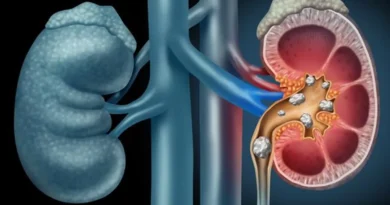Beyond the Shame: Redeeming Persecuted Women
SEOUL, South Korea, Women and girls in Christian-minority countries remain some of the most vulnerable targets of religious persecution. Yet, beyond the trauma of captivity and abuse, many face a second wave of pain, rejection from their own church communities once they return home.
Easy Targets in Dangerous Territories
At the World Evangelical Alliance’s 14th General Assembly, held at SaRang Church in Seoul, experts on gender-based persecution shed light on the heartbreaking realities Christian women endure across Africa and South Asia.
Irene Kibagendi, Executive Director of the Pan African Christian Women Alliance, recounted the experiences of women in Nigeria, Sudan, and the Democratic Republic of Congo, stories of girls kidnapped on their way to school, forced conversions, and sexual violence.
“They’re the easy targets,” Kibagendi said. “After escaping, they return home pregnant or with children, only to face rejection from their families and the Church that should have embraced them.”
When the Church Turns Away
Kibagendi’s words expose a painful truth, the Church, meant to be a refuge, sometimes becomes another source of rejection. Many victims are deemed “impure” or “unfit” to return, as though their trauma has stained their worth.
“It’s as if the Church thinks the blood of Christ isn’t strong enough to cleanse these women,” said Emma van der Deijl, CEO of Gender and Religious Freedom, who moderated the session. “The enemy wins when we allow the shame of persecution to divide the Body of Christ.”
Read Also: Clerics Urge Calm Over Trump’s Comment on Nigeria
Van der Deijl urged the Church to become a place of healing, not condemnation. “It is our sacred duty to restore those who have suffered, to remind them their identity and dignity are safe in Christ.”
Scars Beyond the Surface
The wounds of persecution extend far beyond the physical. Sarah Cunningham of Open Doors US described the deep psychological scars many women carry, post-traumatic stress, anxiety, and withdrawal.
“They live with stigma and fear,” she explained. “They’ve endured secret, intimate violations that leave lasting pain. Many fear it could happen again, and that fear isolates them further.”
In many communities, there is no safe space to share these experiences, leaving victims to carry their grief in silence. “There’s not a place in their community to get care,” Cunningham said. “No safe person to speak to about the trauma they’ve endured.”
A Call for Compassion and Reintegration
Despite these dark realities, hope flickers. Van der Deijl noted that some churches have begun “stepping outside cultural norms” to welcome persecuted women with grace, focusing blame on perpetrators rather than victims.
Rev. Martha Das, General Secretary of the National Christian Fellowship of Bangladesh, emphasized that while some Christian organizations provide practical help, too many churches still avoid “messy” situations. “The Church wants to be perfect,” she said. “But Jesus met people in their pain.”
Kibagendi called on the global Church to rise to its redemptive responsibility: “We need to integrate persecuted women and children back into the community without judging them. The Church must become a rescue place for everyone who needs help.”
She urged churches to establish care groups that restore dignity and provide emotional and spiritual support. “Let the Church reflect Christ’s heart, one that heals, embraces, and restores.”
Hope Beyond the Hurt
The WEA General Assembly, themed “The Gospel for Everyone by 2033,” challenged believers to reach every soul, including those wounded by persecution. As part of its final sessions, delegates affirmed the Seoul Declaration, a guiding document addressing critical issues like gender, religious freedom, and justice.
The message that echoed through Seoul was unmistakable: the Gospel is not for the perfect but for the broken.
When the Church truly becomes a sanctuary, not a courtroom, persecuted women will find the grace to heal, the courage to hope, and the strength to rise again in Christ.
Content Credit | Olaoluwa Ayomide
Image Credit | Christiandaily.com




